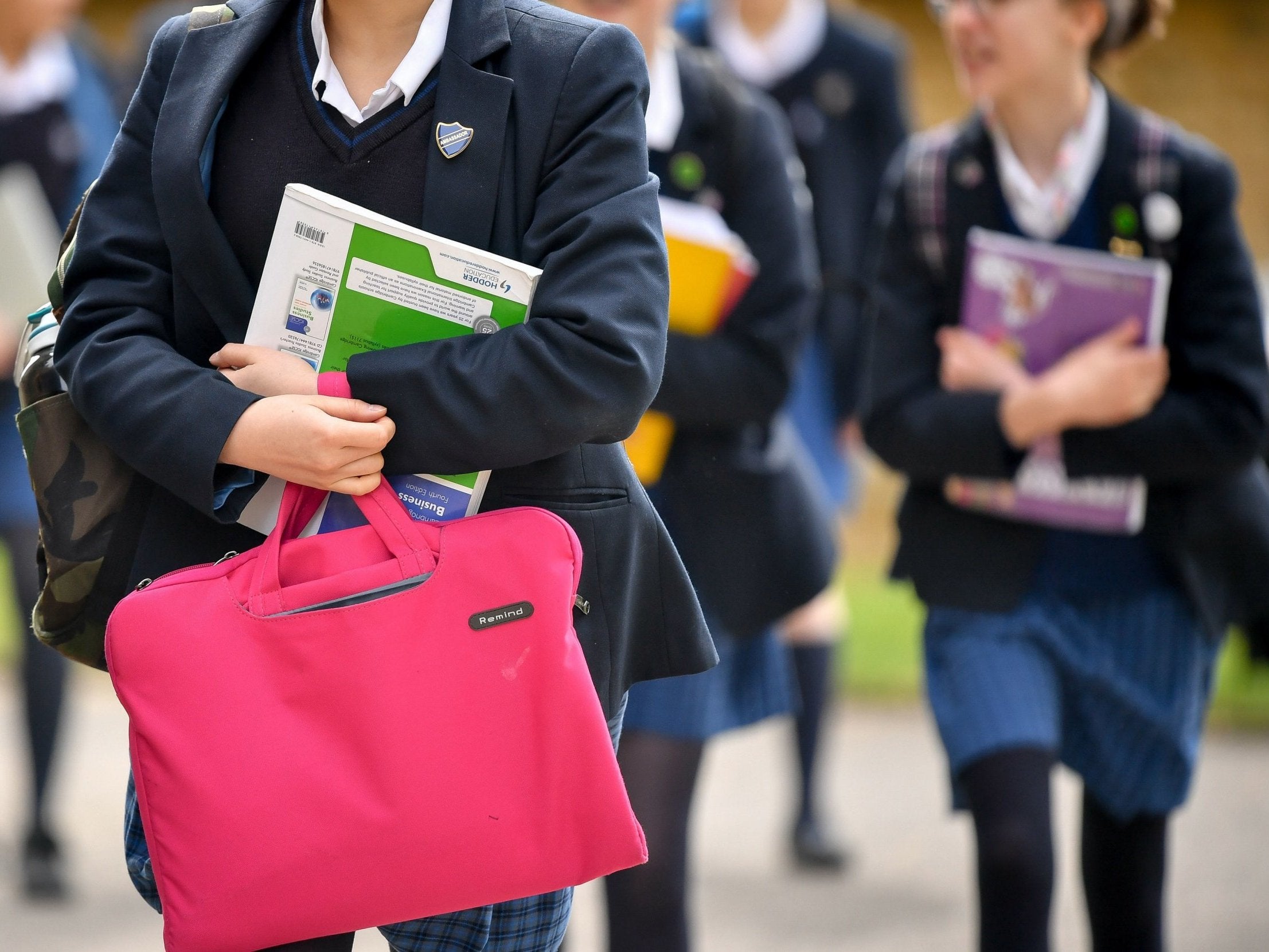Poorest families half as likely to get top choice of school through appeals system, study finds
Parents with poor literacy or English as additional language are ‘disadvantaged’ by system

Children from the poorest families are half as likely to get into their top choice of secondary school through the appeals system, as the requirement for written statements can be a barrier to parents, a study has found.
Parents in the most affluent areas have a much better chance of securing their preferred school through the appeals and waiting list system, according to think tank Education Policy Institute.
Poorer families with lower literacy or English as an additional language could be disadvantaged by the appeals system as they have to provide a written statement outlining parents’ reasons for appeal.
The study also reveals that only one in 10 black students and 12 per cent of Asian pupils get their first choice through the process, compared with 21 per cent of white British pupils.
Around 86,000 families in England were not offered their first-choice school in 2016-17. Of these, around one in seven (13,000) successfully appealed or used waiting lists to secure their top choice.
The report, which is the first detailed analysis of secondary school appeals and waiting lists, calls on the government to urgently review the school admissions procedures or risk entrenching inequality.
Affluent families have a better chance of securing their top choice of school as they can afford to live near to good or outstanding schools and they also may have more resources to pursue an appeal.
“It is plausible that the appeals system may disadvantage some parents through its requirement for a written statement at the start of the process, outlining parents’ reasons for appeal.
“This is clearly a potential barrier for parents with poor literacy or for whom English is not their first language,” the report says.
The research comes at a time when the choices that parents face are “increasingly complex” as the majority of secondary schools are now academies, which act as their own admission authorities, the study says.
The think tank is calling on families to be given better information and support to navigate the admissions and appeals process and to ensure a level playing field for parents.
Emily Hunt, senior researcher at EPI, said: “The school appeals and waiting lists system in England is reinforcing inequalities in education, with more deprived families and those from some ethnic minority backgrounds less likely to get into their preferred schools.
“If you are a family from the very poorest neighbourhood, then your odds of securing your top choice of school by appealing or using waiting lists is half that of a family from the most affluent neighbourhood.
“This is particularly concerning as parents use these routes to access schools with higher Ofsted ratings, and these schools also have socially advantaged intakes.”
She added: “The government should deliver on its recent promise to review the schools admissions system, or risk damaging social mobility.”
As the number of pupils entering secondary schools is set to rise in the next few years, competition for school places among families is likely to intensify, experts have warned.
Ms Hunt added: “With a population bulge hitting secondary schools, increasing pupil numbers by around 15 per cent over the next decade, we may see growing pressures on capacity in the school system.
“As a result of increased competition for school places among parents, we may see inequalities in the current appeals and waiting list system becoming further ingrained”.
Paul Whiteman, general secretary of school leaders’ union NAHT, said: “Until the government comes up with a national strategy to guarantee there are enough school places for every child in England, the annual anxious wait for families will always be a problem.
For too many, there will be huge disappointment. In some parts of the country, it will mean children having to travel long distances to go to secondary school or being separated from their peers.
“Children from disadvantaged areas are disproportionally impacted, being half as likely to secure their top choice of school through the appeals and waiting list system than those in affluent areas.”
Mr Whiteman warned that the issue was not “going away” as the proportion of first preference offers dropped last year, meaning just over 104,000 young people did not get what they wanted.
A Department for Education spokesperson said: “We have provided guidance for parents to help them understand the [appeal] process and have made clear to appeals panels they must ensure the process consistent, with all parties being treated fairly.”
They added: “We are on track to deliver a million new school places this decade, giving more parents access to a good school place. In 2018, 97.7 per cent of families received an offer of a place at one of their top three preferred primary schools and 93.8 per cent of families received an offer of a place at one of their top three preferred secondary schools.”
Join our commenting forum
Join thought-provoking conversations, follow other Independent readers and see their replies
Comments